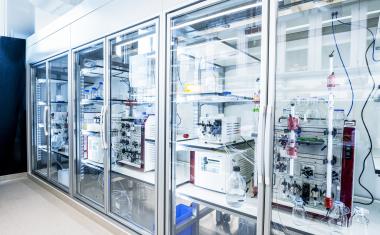Nomad Receives €1.2 Million Grant from Saxony-Anhalt
Nomad Bioscience, a plant biotechnology company, has announced that the Company has been awarded a research and development grant from the German state Saxony-Anhalt.
The financed project aims at development of novel antimicrobial proteins to prevent food-borne pathogens such as enterohemorrhagic Escherichia coli (EHEC) and Listeria monocytogenes.
The aim of the grant is to allow Nomad to complete pre-regulatory stage of the project. The grant amounts to €1.2 million over two years and provides 45% of the cost of the project under development.
EHEC cause over 200,000 illnesses per year at an annual cost to the EU and U.S. economies of approximately €2 billion. Many of these illnesses have been linked to consumption of foods derived from or contaminated by animal products or organically grown vegetables.
The latest cases have been in Germany in 2011, when EHEC-contaminated bean sprouts resulted in 42 deaths and over 3900 sicknesses. Because pathogenic bacteria are commonly found as members of the gastrointestinal population of food animals, they can be introduced into the food chain in many ways. A variety of intervention strategies have been implemented over the past 10 years, however, foodborne illnesses still occur far too frequently.
Listeria monocytogenes is a foodborne pathogen responsible for human listeriosis, a severe gastrointestinal illness with a mortality rate of 30%. Numerous cases of foodborne illness have been linked to the consumption of ready-to-eat (RTE) products contaminated with L. monocytogenes.
Unique feature of Nomad's research and development project is its use of new generation expression systems for rapid, flexible and inexpensive manufacturing in green plants of proteins that can't be manufactured economically in bacteria because of their bacterial toxicity.
Colicins, the intended non-antibiotic antibacterials, are non-antibiotic antimicrobial proteins produced by certain E. coli strains that kill or inhibit the growth of other E. coli strains. Colicins have been shown to be highly effective against EHEC strains, reducing the bacterial load by 3 to 5 logs. They also have been shown to kill Listeria at concentrations lower than the currently used antibacterials (bacteriocins Pediocin and Nisin).


















